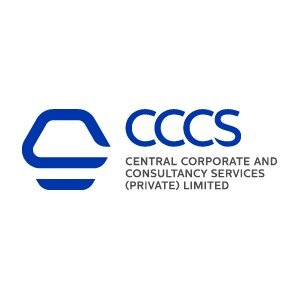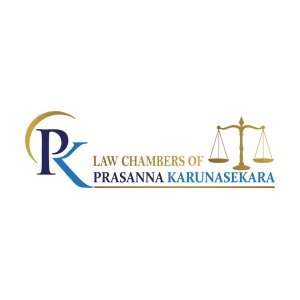Best Merger & Acquisition Lawyers in Sri Lanka
Share your needs with us, get contacted by law firms.
Free. Takes 2 min.
Or refine your search by selecting a city:
List of the best lawyers in Sri Lanka
About Merger & Acquisition Law in Sri Lanka
Merger & Acquisition (M&A) law in Sri Lanka is a specialized area that governs the consolidation of companies or assets. This field of law deals with the complexities of merging two or more organizations or acquiring businesses through various types of transactions. M&A activities in Sri Lanka are influenced by the legal framework, regulatory standards, and market conditions. The primary objective is to create synergy, enhance market reach, or realize financial benefits by effectively combining resources and assets.
Why You May Need a Lawyer
Engaging in M&A transactions is often intricate and requires expertise to navigate the legal landscape efficiently. A lawyer specializing in M&A can assist with:
- Comprehensive due diligence to ensure informed decision-making.
- Structuring and negotiating deals to protect your interests.
- Handling compliance with local and international laws.
- Drafting and reviewing legal documents, such as contracts and agreements.
- Addressing potential risks and liabilities associated with the transaction.
Legal advice is vital for both local and foreign investors to ensure that the transaction aligns with their strategic objectives while conforming to legal requirements.
Local Laws Overview
In Sri Lanka, M&A activities are governed by several key regulations and statutory bodies, including:
- Companies Act No. 7 of 2007: The primary legislation regulating company law, which covers mergers, takeovers, and acquisitions.
- Securities and Exchange Commission of Sri Lanka (SEC): Oversees capital markets, offering guidelines and regulations pertinent to publicly listed companies.
- Foreign Exchange Regulations: Govern investments made by foreigners in Sri Lankan companies, impacting M&A transactions involving international parties.
- Competition Law: Aims to ensure fair competition and is particularly relevant for mergers that may affect market dynamics.
Frequently Asked Questions
What is the first step in an M&A transaction?
The first step is typically to identify the strategic goals of the transaction and conduct preliminary due diligence to assess suitability and potential value addition.
Do I need regulatory approval for M&A activities in Sri Lanka?
Regulatory approval may be required, especially if the transaction involves publicly traded companies or foreign investments. Consultation with a legal expert is recommended.
How does the taxation framework impact M&A transactions?
Tax implications can be significant in M&A transactions, affecting the overall financial outcome. Proper tax planning and compliance are essential to avoid penalties.
What are anti-competitive considerations in M&A?
Anti-competitive considerations arise when a merger or acquisition may significantly reduce competition in the market. Authorities may scrutinize such transactions to ensure fair competition.
How long does an M&A transaction typically take?
The timeline can vary widely depending on the complexity of the transaction and regulatory requirements, ranging from a few months to over a year.
What role does due diligence play in M&A?
Due diligence is crucial for evaluating a target company's legal, financial, and operational status. It helps in identifying potential risks and negotiating better terms.
Can foreign entities acquire local companies in Sri Lanka?
Yes, foreign entities can acquire local companies, but they must comply with relevant foreign exchange laws and regulations.
What are common challenges in M&A transactions?
Challenges include regulatory compliance, cultural integration, valuation discrepancies, and unforeseen liabilities.
How is a merger different from an acquisition?
A merger involves the combination of two companies to form a new entity, while an acquisition involves one company taking over another, either by purchasing its shares or assets.
What post-merger integration steps should be taken?
Post-merger integration includes aligning operations, resources, and cultures, as well as reassessing strategic goals to ensure a successful merger.
Additional Resources
For further guidance, you may consider contacting:
- Securities and Exchange Commission of Sri Lanka: For regulations regarding listed companies.
- Board of Investment of Sri Lanka: For information on foreign investments and incentives.
- Sri Lanka Accounting and Auditing Standards Monitoring Board: For financial reporting standards and compliance.
Next Steps
If you require legal assistance in the field of Merger & Acquisition in Sri Lanka, consider the following steps:
- Identify your strategic objectives and potential targets for M&A.
- Conduct preliminary research on potential legal and regulatory issues.
- Consult a reputable legal firm with expertise in M&A in Sri Lanka to acquire tailored advice and support.
- Engage financial advisors and accountants to understand the fiscal implications.
- Begin due diligence and prepare for negotiations and compliance procedures.
Lawzana helps you find the best lawyers and law firms in Sri Lanka through a curated and pre-screened list of qualified legal professionals. Our platform offers rankings and detailed profiles of attorneys and law firms, allowing you to compare based on practice areas, including Merger & Acquisition, experience, and client feedback.
Each profile includes a description of the firm's areas of practice, client reviews, team members and partners, year of establishment, spoken languages, office locations, contact information, social media presence, and any published articles or resources. Most firms on our platform speak English and are experienced in both local and international legal matters.
Get a quote from top-rated law firms in Sri Lanka — quickly, securely, and without unnecessary hassle.
Disclaimer:
The information provided on this page is for general informational purposes only and does not constitute legal advice. While we strive to ensure the accuracy and relevance of the content, legal information may change over time, and interpretations of the law can vary. You should always consult with a qualified legal professional for advice specific to your situation.
We disclaim all liability for actions taken or not taken based on the content of this page. If you believe any information is incorrect or outdated, please contact us, and we will review and update it where appropriate.
Browse merger & acquisition law firms by city in Sri Lanka
Refine your search by selecting a city.

















